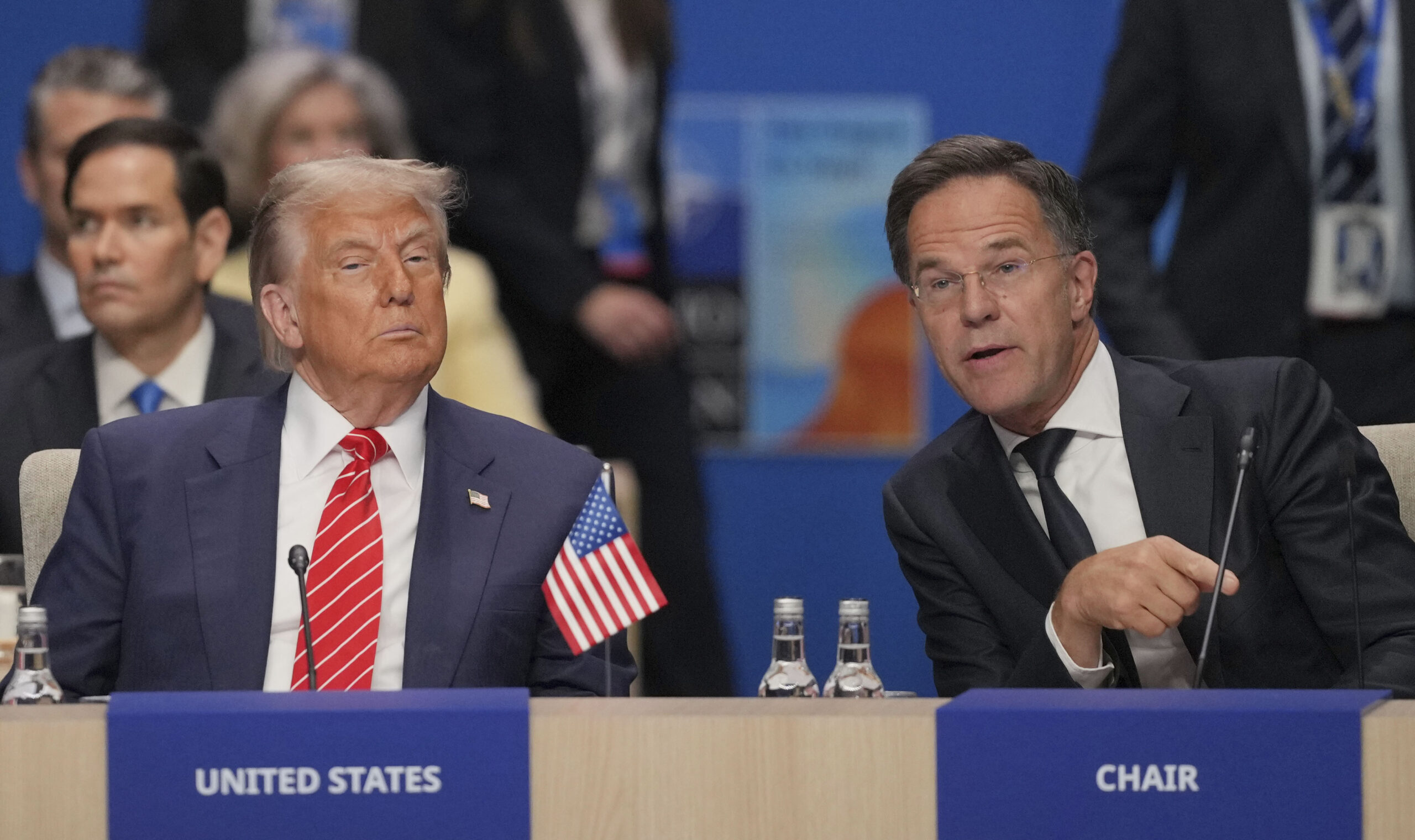The Difference Between an ‘Ally’ and a ‘Protectorate’
We should normalize using the word “protectorate” instead of “ally.” It will help in objective and achievable foreign policy results.

There’s a certain observable pair of traits that dominate President Donald Trump’s foreign-policy calculus: He understands good and daring optics, but he hates protracted attritional conflicts. He likes a performative display of short-term strength; he hates the idea of Americans dying under his watch, and has no interest in joining a fray that might lead thither.
We saw these traits at play when Ukraine scuttled the peace talks with Russia, after a long-planned decapitating drone strike that took out a third of the Russian strategic bomber fleet. The president was clearly impressed by the Ukrainian strikes, even when it actively nixed his diplomacy. He appreciated the Israeli first strike on Iran. But he was also very impressed by Iranian missiles, which required a lot of American assets to shoot down. A visible show of strength simultaneously appeals to him and deters him from long term engagement. He likes those who pay their “fair share.” He hates those who freeride and leech. The man loves a “deal.”
Nowhere was this more visible than at the NATO summit that just concluded in Europe, where the NATO secretary general, the classic wily Dutchman Mark Rutte, managed to mollify Trump and have a drama-free summit that advanced a potential European promise of 5 percent of GDP in defense spending—a non-binding target that goes from the current aspirational 2 percent of GDP to 3.5 percent by 2035, and 1.5 percent additional for infrastructure and other defense-related outlays. Progress will be reviewed by the time of the next American general election.
All he had to do was call Trump “Daddy.” For what it’s worth, he didn't directly call him that. Rather, when Trump described Israel and Iran as two errant children, Rutte mentally translated what was perhaps a great joke in his mind, and landed in a weird pickle, further proving the political rule of thumb not to let Northwestern Europeans (other than Anglos) ever joke at a political summit. Britain pledged to buy nuclear-capable F-35s, pushing their second strike capabilities to air for the first time since the end of the Cold War. But Spain refused to pledge 5 percent of their GDP to defense, and rightly so. They face no threats from Russia; the very idea is absurd. “Rachel Ellehuus, director of the defence think tank Rusi sees evidence of a spending split within Nato, along geographical lines,” the BBC reported.
The NATO commitment was desacralized after the Biden years, but was still deemed “ironclad” by the United States. Europe pledged to underscore “their enduring sovereign commitments to provide support to Ukraine,” a far cry from the heady days of 2022, when Ukraine was the battle for democracy. “The summit’s official declaration mentioned nothing about Ukraine joining the alliance, a longstanding point of discussion. A meeting between Mr. Zelensky and Mr. Trump yielded no specific promises about peace talks, although Mr. Trump said it was possible that the United States would send more Patriot air defense systems to Ukraine,” reported the New York Times. It is unclear why the U.S. should send Patriots to Ukraine when it was the Ukrainians who ended talks between the U.S. and Russia, but no one was there to remind Trump of that, given the Iran–Israel business.
For all these words, no business was settled at the summit, nor did any reorientation of the fundamentals of U.S. grand strategy happen, because the basic theoretical tension remains within the American foreign policy. The reality is that hegemons do not have allies; they have protectorates. Normal empires and normal great powers have allies and limited interests based on geography. The British Empire was an ally of the U.S. when NATO was formed; it had comparable manpower and military heft. Alliances show some form of relative power and independence of foreign policy. Imperial Germany and the Austro-Hungarian empire were not equals, but they were allies. Britain and France today are allies. But the U.S. and the rest of NATO are not allies.
Some Western European countries, especially France, but also Britain and Germany, perhaps have the capability to undertake occasional independent actions, but they have not been willing to do so, with the exception of France in Africa. The rest are basically protectorates. Same in the Middle East. There are no hegemonic challenges to the U.S. in either region.
Subscribe Today
Get daily emails in your inbox
Protectorates are either good or bad. Good protectorates are force multipliers. A hegemon might come to save them when they are threatened or attacked for in return for some structural benefits during peacetime—raw materials and mining, or manpower and manufacturing. Bad protectorates are those who want to chain-gang you into a war of choice. Most U.S. “allies” are, by that definition, basically bad protectorates.
Using the term “protectorates” instead of “allies” is useful, as it makes it clear which affiliates are beneficial and which are corrosive. It puts the burden on those who want American protection to make themselves useful to America. It deters them from dragging their hegemonic protector into their petty ethnic or regional rivalries, begging for protection when the inevitable retaliations materialize. It prevents the development of an Electra complex in foreign policy. It is a true, objective, and quantifiable measure of determining which countries are useful and which are not. And officials around Donald Trump, or aligned media influencers, should start using the term to influence the president’s decision-making more.
Great power equilibrium is the greatest virtue in international relations. It is also the most truly conservative position of all. As in Eastern Europe, so in the Middle East; the greatest cause of instability is reckless protectorates frustrating efforts toward peace.